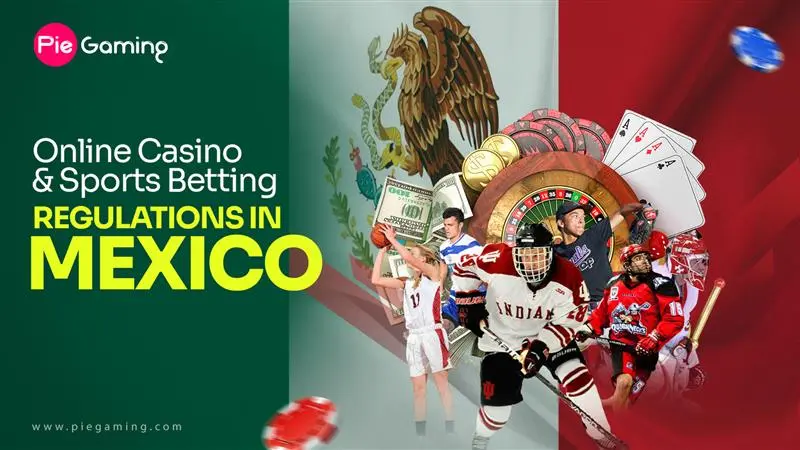Online Casino & Sports Betting Regulations in Canada | 2025
- Author:Palak Madan
- Read Time:15m
- Published:
- Last Update:

Canada’s 2025 iGaming laws vary by province. This guide breaks down what’s legal, what’s changing, and where online casinos and sports betting stand today.
Millions in potential profits vanish yearly for operators who misread Canada’s gambling regulations.
In 2025, online casino regulation in Canada varies greatly between provinces- each has different rules, taxes, and licenses.
Ontario lets private companies in while Quebec keeps tight government control.
New federal changes have made these differences even bigger, creating both new opportunities and tough challenges.
So, before placing your business bets in this profitable but fragmented market, here’s what you absolutely need to know.
The Legal Framework in Canada – A National Overview
#Criminal Code of Canada
When Canada first created its criminal code in 1892, betting was mostly banned, considered a moral offence.
Over time, the country slowly loosened these restrictions.
In 1910, betting on horse races became legal.
Then, in 1969, charity lotteries were allowed, making a big shift in attitude.
The most significant change came in 1985, when the federal government gave provinces the power to control gambling within their borders, including lotteries, casinos, and electronic gaming.
This shaped the base of today’s Canadian online gambling regulations.
#Impact of Bill C-218 and Single-Event Betting (2021)
In June 2021, Canada passed Bill C-218, making single-event sports betting legal.
Before this, Canadians could only place parlay bets (betting on multiple outcomes at once).
This important change allowed provinces to regulate single-event sports betting themselves.
Ontario quickly took advantage by including single-event betting in its internet gaming market and giving licenses to private operators. This reflected a shift in gambling laws in Canada.
#How Provincial Governments Regulate Gambling
Under section 207 (1) (a) of the Criminal Code, provinces have complete authority to “conduct and manage” betting in their regions.
This covers everything from physical casinos and racetracks to iGaming platforms.
Provincial lottery corporations typically run these operations, while regulatory agencies ensure everyone follows the rules.
Each province has created its own approach.
Ontario developed its iGaming program, while Alberta recently moved to regulate private iGaming companies under new online gambling regulations in Canada 2025.
#Types of Gambling Operations in Canada
Canada has three main types of gambling operations:
1) Government-operated platforms that are run by provincial lottery corporations (like Play Alberta).
2) Private-licensed operator companies that get licenses from provincial authorities.
3) Grey-market operations that include betting websites that Canadians can access but aren’t regulated in Canada.
Provinces like Alberta are trying to reduce grey-market gambling by introducing stricter rules and licensing systems.
This aligns with broader efforts to make online gambling legal in Canada in a consistent and regulated way.
#Recent Federal Developments (as of 2025)
In 2025, federal discussions about betting mostly focus on making provincial regulations more consistent to deal with offshore grey market operators.
Alberta recently proposed the iGaming Alberta Act to regulate private iGaming companies and capture revenue that’s currently going to unregulated platforms.
This follows Ontario’s model from 2022, showing a trend toward stronger Canadian gambling laws and giving provinces more control over iGaming markets.
Read More – Where Are Online Casinos Legal
Province-by-Province Regulatory Breakdown (2025)

Provincial Breakdown of Canada’s iGaming Regulations
Operating across provincial lines requires understanding each region’s unique framework. Here’s what you need to know.
Ontario
Ontario has a fully regulated market for online casinos and sports betting. It was the first Canadian province to legalize iGaming on April 4, 2022.
The Alcohol and Gambling Commission of Ontario (AGCO) and iGaming Ontario (IGO) regulate betting. From 2025, IGO will operate independently following Bill 2016.
Here are some of the key regulations of this province:
- Betting businesses need licenses from AGCO and agreements with IGO.
- Age limits: 19 for online casinos and sports betting; 18 for lottery and bingo.
- Players must be physically present in Ontario (verified by location tracking).
- Ads offering “free spins” or similar online casino bonuses and promotions are not allowed.
- Strong rules protect players and ensure fair play.
- Marketing can’t use athletes or celebrities popular among young people.
Recently, Bill 216 (passed November 6, 2024) made IGO fully independent from AGCO. This change helped streamline operations and improve oversight in Ontario’s betting industry.
British Columbia
British Columbia has rules in place for online gambling, lotteries, and casinos.
Two groups oversee betting:
- British Columbia Lottery Corporation (BCLC)
- Gaming Policy and Enforcement Branch (GPEB)
Here are the main rules and regulations:
- Everyone offering betting services needs proper permits under the Gambling Control Act.
- Betting platforms must have tools to help problem gamblers and check that players are at least 19 years old.
- Strict limits on ads that target vulnerable people, especially sports betting.
- PlayNow.com is the only officially approved betting platform in British Columbia.
Here’s what’s new in 2025,
BC partnered with Atlantic provinces on a “National Sports Betting Solution” using the “PROLINE+” brand. This aims to create one platform across different provinces by late 2025.
Overall, BC hasn’t completely changed its betting laws in 2025 but has strengthened enforcement of current rules. It is working with partners to reduce offshore illegal betting.
Alberta
Currently a monopoly (PlayAlberta), but 2025’s Bill 48 will open the market and shape Alberta’s approach to sports betting regulations in Canada.
Here’s the InCharge of gambling activities in Alberta:
- Regulator: Alberta Gaming, Liquor and Cannabis Commission (AGLC)
- Operator: A proposed new government agency called Alberta iGaming Corporation.
Major rules to look at:
- Companies like BetMGM and Bet365 must team up with Alberta iGaming Corporation and follow AGLC rules.
- Until the new system launches, PlayAlberta.ca is the only legal betting platform.
- All platforms must offer tools to help problem bettors and verify that players are physically in Alberta.
- Unlicensed betting platforms and promotions are illegal.
Here’s what’s new in 2025:
- Bill 48, also known as the iGaming Alberta Act, was introduced on March 26, 2025. It would create Alberta iGaming Cooperation, a government-run organization.
This organization will manage legal iGaming in Alberta.
- Alberta wants to capture at least 45% of the betting money currently coming from offshore websites.
- PlayAlberta made $235 million in 2023-2024, but the province wants to keep even more revenue through regulated operators.
Québec
A state monopoly through Loto-Québec. No private licenses have been issued, although growing pressure may change the future of online casino regulations in Canada.
Governing body:
- Primary Regulator: Régie des alcools, des courses et des jeux (RACJ)
- Operator: Loto-Québec (state-owned corporation)
Here are some of the main regulations:
- 18 for all betting activities, including casinos, sports betting, and lotteries.
- Mise-o-jeu+ (solo legal online sportsbook) and Espacejeux (online casino).
- No private gambling companies are allowed to operate legally.
- Tools to limit betting problems include self-exclusion options and deposit limits, plus slot machines must have 80% RTP rates.
Here are some new changes in 2025,
- The Québec online gaming coalition is pushing hard for private betting companies to be allowed in. It suggests bringing in $230 million yearly.
- About 500,000 Quebecers bet $14 million on Super Bowl LIX, mostly through unauthorized platforms.
- Budget discussions included proposals to license private companies. It has the potential to bring in $300 million yearly for social programs.
Manitoba
Manitoba offers a mix of legal and grey-market betting options. Here’s what’s happening in the province:
Governing Body:
- Liquor, Gaming & Cannabis Authority of Manitoba (LGCA)
- Manitoba Liquor & Lotteries Corporation (MBLL)
Let’s have a look at the key regulations:
- The legal age is 18 years for all types of betting (though some betting types might require you to be 19).
- PlayNow Manitoba is the only government-approved online betting platform, plus land-based venues like Club Regent Casino in Winnipeg.
- Licensed bingo games, raffles, and break-open tickets are permitted.
Here’s how the iGaming scene looks in 2025:
- Manitoba is talking about bringing in more operators like DraftKings and BetMGM, but hasn’t approved any yet.
- Many Manitobans use offshore betting platforms because PlayNow has limited options, pushing officials to consider updates.
Saskatchewan
Saskatchewan’s betting setup combines government rules with First Nations’ Casino management. Here’s what you should know:
- Saskatchewan Liquor and Gaming Authority (SLGA) makes the rules.
- Lotteries and Gaming Saskatchewan (LGS) manages day-to-day operations (since 2023).
- Saskatchewan Indian Gaming Authority (SIGA) runs seven casinos across the province.
What’s allowed:
- Legal 19 years of age for all betting activities.
- PlayNow.com is the only legal provincial platform.
- Split between First Nations (50%), community development (25%), and the province (25%).
- Bingo, raffles, and tickets are allowed with proper licenses.
Recent Developments:
- The province recently shifted operational duties from SLGA to LGS in 2023.
- Many players still use offshore betting platforms for more local options.
- No major law changes in 2025.
Nova Scotia & New Brunswick
Both Nova Scotia and New Brunswick regulate betting similarly, with some important differences worth knowing about.
You must be 19 or older to bet in both provinces. Both places have regulated lotteries, casinos, and charity gaming, while offshore betting platforms remain accessible to residents.
Different organizations oversee betting in each province:
- Nova Scotia’s betting operations are managed by the Alcohol, Gaming, Fuel and Tobacco Division.
- New Brunswick relies on their Lotteries & Gaming Corporation.
- Both provinces share the Atlantic Lottery Corporation, which runs Pro-Line stadium (the only legal online sportsbook) and lottery games.
New Brunswick has partnered with other provinces to improve sports betting options through the “PROLINE+” system.
Prince Edward Island
Governing Body:
- PEI Lotteries Commission oversees all betting activities.
- Atlantic Lottery Corporation (ALC) runs day-to-day operations.
Basic regulations:
- Players must be 19 or older to gamble.
- Pro-Line Stadium for sports betting and ALC.ca for casino games and lotteries.
Player protection measures:
- 1.5% of betting revenue funds are responsible for betting operations.
No major regulatory changes in 2025.
Newfoundland and Labrador
Governing Body:
- Service NL (Gaming Compliance Division) makes the rules
- Atlantic Lottery Corporation runs the betting operations.
Basic Rules:
- Players must be 19 or older to bet.
- PRO-LINE Stadium for sports betting.
- Many residents use offshore betting platforms (not regulated but widely accessible).
New developments in 2025:
- Working with other provinces on PROLINE to improve sports betting.
- No major changes to betting laws (still using the 1991 Lotteries Act).
Read More – What Is Online Casino Software?
Taxation & Revenue Sharing Structure
Each Canadian province has its own betting tax rules. Understanding these differences is crucial before starting your online casino or sportsbook platform.
| Province | Tax/Revenue Share to Government | Licensing Fee | Notes |
|---|---|---|---|
| Ontario | -20% of Gross Gaming Revenue (GGR) | CAD 100,000$ per site | Plus HST on fees; revenue‑share paid to iGO, then remitted to the province. |
| Québec | -25% of GGR | N/A (State Monopoly) | All net revenue retained by Loto‑Québec/RACJ for public programs. |
| British Columbia | -53% of GGR after BCLC operating costs | N/A (Provincial Monopoly) | BCLC retains ~47% to cover costs and payouts; the remainder to the province. |
| Alberta | TBD under Bill 48(iGaming Alberta Act) | N/A (Provincial Monopoly) | Current monopoly (PlayAlberta); structure to be defined post‑launch. |
| Saskatchewan | 100% of net gaming revenue to SLGA/LGS | N/A (Provincial Monopoly) | All net proceeds fund provincial and First Nations programs. |
| Manitoba | 100% of Net Gaming Revenue to MBLL/LGCA | N/A (Provincial Monopoly) | No private‑operator tax; MBLL retains all net revenue. |
| Nova Scotia | 100% of net gaming revenue to ALC | N/A (Provincial Monopoly) | ALC shares funds with provincial initiatives and the Atlantic Lottery Corp. |
| New Brunswick | 100% of net gaming revenue to ALC | N/A (Provincial Monopoly) | Shared ALC platform (ProLINE+) across Atlantic provinces. |
| Prince Edward Island | 100% of net gaming revenue to ALC | N/A (Provincial Monopoly) | Small market; all net proceeds to provincial programs. |
| Newfoundland & Labrador | 100% of net gaming revenue to ALC | N/A (Provincial Monopoly) | Uses legacy Lotteries Act; revenue fully retained by ALC. |
Summary:
➤ Ontario is the only province with an open market. You’ll pay about 20% tax on your betting revenue, plus yearly fees.
➤ Quebec and British Columbia only allow government-run betting. In Quebec, the govt. Keeps about 25% of betting revenue.
In British Columbia, the government keeps about 53% of betting revenue.
➤ Alberta’s rules are still changing. Keep an eye on Bill 48 to learn exactly how much you’ll need to share with the government and what fees you’ll pay.
➤ In Saskatchewan, Manitoba, Nova Scotia, New Brunswick, Prince Edward Island, and Newfoundland:
- You can’t operate independently.
- All betting revenue goes to the provincial government.
- Your only option is to partner with or provide services to the government betting operators.
Read More – How to Secure a Gaming License?
How to Get an iGaming License in Canada?
Each Canadian Province makes its own rules for iGaming. Ontario has the most developed system, while other provinces are still catching up.
To get licensed in Ontario, here are the steps you need to follow:
➤ Send a letter to iGaming Ontario and fill out the AGCO application. You’ll need to share details about your business and finances to show that you legitimate business.
➤ You must set up tools to check players’ IDs, spot suspicious money activities, and help players bet responsibly with betting limits and self-exclusion options.
➤ Make sure your games are fair by using Random Number Generators (RNG in iGaming). You will also need technology that confirms that players are actually in Ontario.
➤ Submit your business plan showing how you will run safely and responsibly. Include policies to protect players and prevent money laundering.
➤ Expect to pay $100,000 per year for each betting platform. If you are a supplier rather than an operator, fees range from $3,000 to $15,000.
➤ Once your license is approved, you must:
- Report suspicious transactions quickly.
- Keep detailed records for at least 5 years.
- Renew your license every year.
Why Choose Ontario?
Ontario offers the biggest betting market in Canada. While this is a great opportunity, you will need to share data with regulators and carefully monitor player activity.
Read More – White-Label vs Turnkey Solutions
Grey Market vs Legal Market: Where Do Operators Stand in 2025?
Ontario’s legal online betting market is crushing.
A strong 93% of betting happens on licensed platforms, bringing in $3.17 billion in 2024.
The province wants to reach 95% by the end of 2025, using strict location tracking and aggressive bans on unlicensed platforms.
Players trust licensed operators more, who can advertise legally and work with regular payment companies.
Grey Market Won’t Quit
Despite the crackdown, unlicensed betting platforms still have strong followings:
- In Alberta, 70% of iGaming still happens on offshore platforms like Bet365 and Bodog.
The province is scrambling to create its own regulated market by the end of 2025.
-
- British Columbia’s official lottery corporation (BCLC) holds less than half the market share at just 49%.
- Across Canada, companies like Betway and Spin control about 35% of all unregulated betting, with Stake (10%) and Bet365 (9%) following behind.
Fight Against Grey Markets
- Ontario is teaming up with international regulators to block unlicensed sites and running campaigns to promote legal options.
- Alberta’s proposed iGaming Alberta Act would ban ads from grey-market platforms and require licensed operators to provide self-exclusion tools.
- Manitoba made a bold move in 2025, establishing a first-of-its-kind legal jurisdiction to kick Bodog (an iGaming platform) out of the province entirely.
Biggest Hurdles
- Grey-market platforms face more payment blocks but use cryptocurrency and offshore banking to get around them.
- Many bettors still prefer unlicensed platforms for better odds, live streaming features, and fewer deposit limits.
- Provincial regulators can’t easily block international platforms and must rely on internet providers and public education.
What’s expected in 2025?
Legal operators are gaining ground with AI-powered compliance tools and government partnerships.
Grey market platforms face increasing pressure from:
- Tougher ad restrictions are spreading from Ontario to other Provinces.
- Better location tracking to prevent play on unlicensed platforms.
- Provinces like Alberta are trying to keep $1 billion+ in betting money within local economies.
The future battle between legal and grey markets depends on whether provinces can offer competitive odds in sports betting while still protecting consumers.
Final Thoughts…
Operators, there’s never been a better time to enter the Canadian betting market.
Provincial licensing now gives you clear paths to operate legally across the country.
Yes, you’ll need to add safety features and pay some taxes, but in return, you’ll get a protected market without illegal competition.
Each province has different rules, so you can pick where to focus your business. Millions of Canadian players are looking for trusted platforms like yours.
The Canadian market is now wide open- it’s your time to shine!
FAQs
-
What licenses are required to launch an online casino in Canada?
Each province has different rules. In Ontario, you need to register with AGCO and make an agreement with iGaming Ontario. Other provinces are stricter and generally only allow the government to run betting operations.
-
How much does it cost to start an online casino business in Canada?
Cost ranges from $200,000 to $1.2 million Canadian dollars. This includes expenses for licenses, software, marketing, and day-to-day expenses. The final cost depends on how big your casino will be and what features you have.
-
Can foreign companies operate online gambling platforms in Canada?
Yes, foreign companies can operate in Ontario if they follow all the rules. Most other provinces don’t allow private companies because betting is controlled by the government.
-
Can I offer both casino games and sports betting on the same platform?
Yes, you can have both on one website if the province allows it. Just make sure you follow all the rules for both casino games and sports betting.

Palak Madan is a enthusiastic writer at PieGaming. With over 2+years of experience crafting engaging content and a strong literature background, Palak brings a unique perspective to the world of words. Her ability to blend creativity with strategic thinking has made her a sought-after content creator. She's eager to dive deep into the intricacies of iGaming software, uncovering the stories behind the technology and translating complex features into compelling narratives.
-
 Palak Madan February 13, 2026
Palak Madan February 13, 2026Learn what virtual sports betting is, how it works, and why it’s growing fast in iGaming. A clear, practical guide for operators and betting platforms.
-
 Palak Madan September 29, 2025
Palak Madan September 29, 2025Discover the latest online casino and sports betting regulations in Algeria. Learn how the laws impact operators, players, and the future of iGaming in the region.
-
 Monika Gola August 5, 2025
Monika Gola August 5, 2025Armenia offers golden opportunities to iGaming operators. Here, get a quick insight into online casino and sports betting regulations in Armenia.
-
 Monika Gola June 19, 2025
Monika Gola June 19, 2025Mexico is actively developing as a promising iGaming market. It’s a golden opportunity for operators to learn about online casino and sports betting…
-
 Monika Gola June 5, 2025
Monika Gola June 5, 2025Planning to launch your iGaming business in Malta? This free guide covers sports betting and online casino regulations in Malta to help you…
-
 Palak Madan April 29, 2025
Palak Madan April 29, 2025This guide lists the top 10 sports betting odds providers in 2026, helping operators choose fast, accurate, and reliable data sources for their…
-
 Monika Gola April 28, 2025
Monika Gola April 28, 2025Spain has witnessed remarkable growth in the iGaming industry globally. This blog discusses online casino and sports betting regulations Spain. Stride along till…
-
 Palak Madan April 23, 2025
Palak Madan April 23, 2025The UK’s online sports betting and casino regulations in 2025 focus on permits, following rules, and keeping players safe. Companies must follow new…
-
 Monika Gola April 10, 2025
Monika Gola April 10, 2025Sports betting has been in the roots of South Africa. It’s an opportunity for operators to run an iGaming business and rake in…
-
 Palak Madan February 26, 2025
Palak Madan February 26, 2025Sports betting software development involves creating custom platforms. These platforms help manage bets, process payments securely, and provide live betting options. They also…
-
 Palak Madan November 20, 2024
Palak Madan November 20, 2024Starting a sports betting business in the UK involves ensuring compliance, obtaining licenses, selecting software, setting up payment systems, and much more. Let’s…
-
 Monika Gola August 9, 2024
Monika Gola August 9, 2024A trusted sportsbook platform handles odds, risks, and real-time betting. This guide highlights the top sportsbook software providers to trust. Launching or scaling…
-
 Nikita Ajmani July 11, 2024
Nikita Ajmani July 11, 2024Sports Betting in the iGaming Industry: A market finally getting its dues! Existing for over a century in various parts of the world,…
-
 Simranjeet Kaur July 5, 2024
Simranjeet Kaur July 5, 2024In the high-stakes sports betting world, fortunes can be made or lost as a result of a single match outcome. But what if…
-
 Palak Madan May 28, 2024
Palak Madan May 28, 2024This blog explores the world of sports betting, covering new sports betting trends like mobile apps and AI, key challenges, and future growth…
-
 Simranjeet Kaur May 14, 2024
Simranjeet Kaur May 14, 2024Let’s understand sports betting and odds in sports betting, how they are calculated, and how as a beginner, you can read them.
-
 Palak Madan April 4, 2024
Palak Madan April 4, 2024Explore the future of online sports betting in 2025 and learn how innovation, data, and evolving regulations are shaping growth and global market opportunities.
-
 Palak Madan March 6, 2024
Palak Madan March 6, 2024Launching or running a sportsbook? This Online Sports Betting Sites Checklist reveals key features and compliance steps that you don’t want to miss.
-
 Palak Madan February 8, 2024
Palak Madan February 8, 2024Discover everything you need to know about white label betting exchange solutions in 2025. Learn how they work, and how to launch your own platform.
-
 Palak Madan February 1, 2024
Palak Madan February 1, 2024See how white label sportsbook solutions make online sports betting better. Explore custom features, quick setup, and benefits for operators in 2025.
-
 Monika Gola January 31, 2024
Monika Gola January 31, 2024Discover the top 6 tips for selecting reliable turnkey betting platform providers to enhance the betting experience for your customers. Click to read now.
-
 Palak Madan January 16, 2024
Palak Madan January 16, 2024Here’s the list of the leading 5 whitelabel sports betting exchange providers worth exploring. Note their exceptional services & offerings setting them apart.
-
 Palak Madan December 30, 2023
Palak Madan December 30, 2023Want to launch your own sportsbook? Learn how to create your own sports betting platform from scratch — from licensing to compliance. Start smart in 2026.
-
 Monika Gola December 6, 2023
Monika Gola December 6, 2023The growing popularity of sports betting is opening doors for operators. Read here the history, present and future of the global sports betting…
Voila!
See you in your inbox soon!

Stay ahead of the game. Subscribe for exclusive content, updates, and insiders!
We use cookies to enhance and personalize your browsing experience. By continuing to use our website, you agree to our Privacy Policy.




